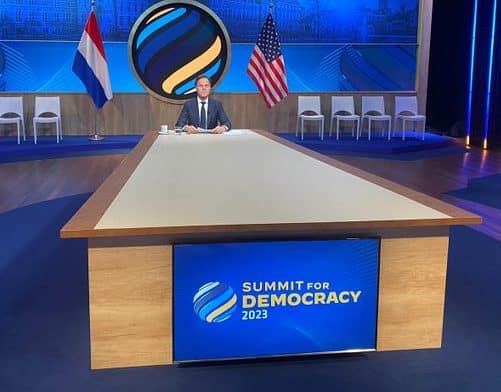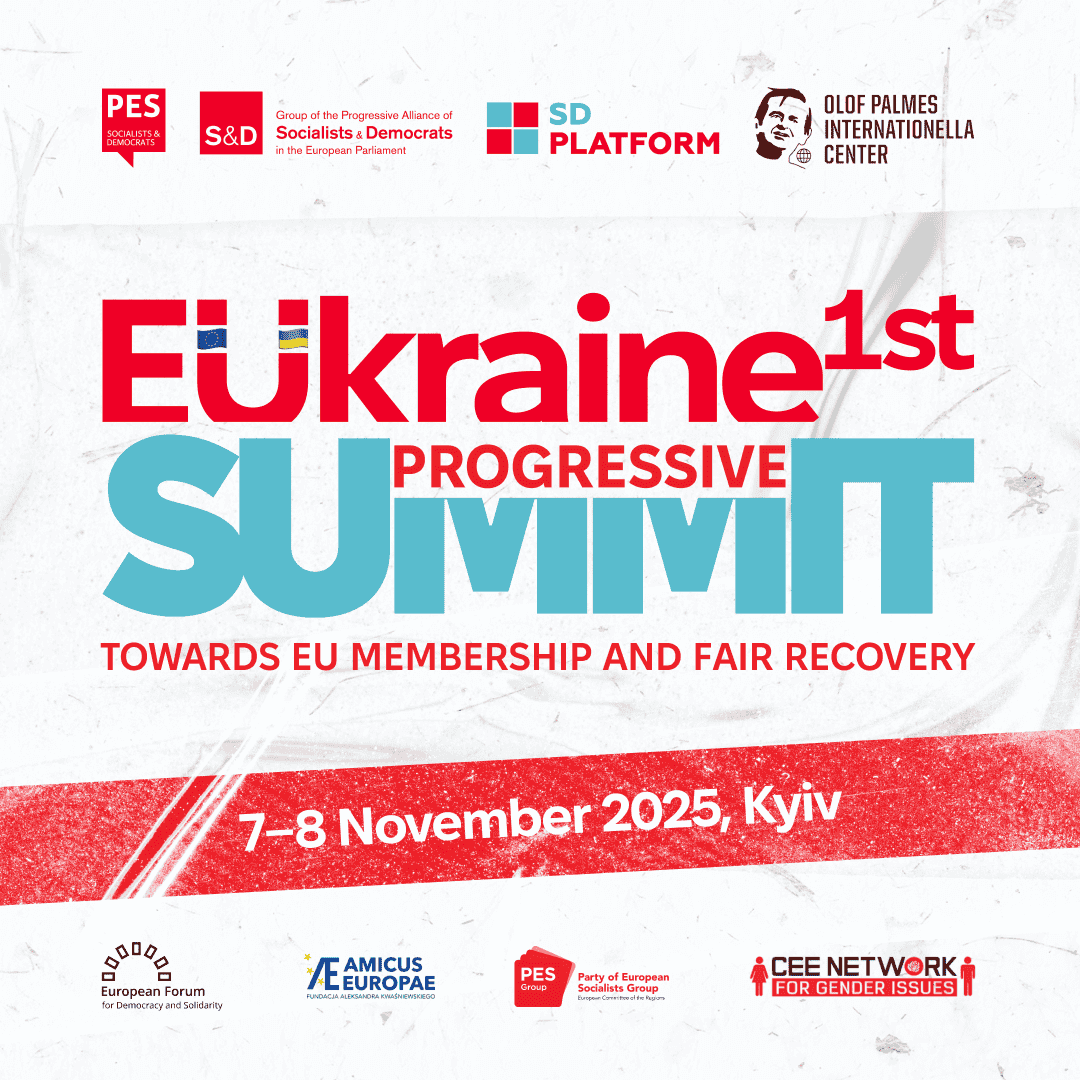Many will not know: The Netherlands was the European host country of the second global Summit for Democracy. An initiative by US President Joe Biden, in response to the questionable state of democracy worldwide. Doobjective of this summit for heads of government is to highlight and strengthen democratic values.
What many of us will know: in the Netherlands, too, democracy has been under pressure for years. The benefits affair, undermining crime, the report on Groningen are just a few examples that show that our democracy does not work for everyone, resulting in a crisis of confidence. Decisive action is therefore needed with an extra commitment to democracy. A Minister for Democracy, whose task must be to defend our democracy, improve it and link it to international efforts, can play an important coordinating role in this.
"Democracy is - literally - not free"
How is it that the Summit for Democracy passed almost silently by the Netherlands? You have to look hard to find any information about it. Our prime minister recently stated in an article in the NRC that democracy - literally - is not free, referring to the war in Ukraine and the necessary increase in the defence budget. But more money for defence alone is not going to save democracy. That requires, logically anyway, more money for democracy too - aimed at foreign countries, but certainly also aimed at the Netherlands itself.
Some 30 per cent of the population feels politically unrepresented, trust in the government is at an all-time low, anti-democratic forces sound loud and Dutch have little faith in the problem-solving ability of government and parliament. It also shows that 42% of Dutch people feel that decisions are made by a small elite who only care about themselves. All signals on red indicating overdue democratic maintenance. This calls for urgent repair.
A series of activities we organised with the Dutch coalition 'Democracy under pressure' in the last two weeks of March (see www.democracyunderthreat.org) indicates that many in the Netherlands - young and old, in Amsterdam Zuid-Oost, Groningen, all over the country, theoretically and practically educated - are not only concerned about democracy but also want to engage in democracy as active citizens. Something of urgency is felt by the government and the various ministries (Foreign Affairs, Interior and Kingdom Relations, Security and Justice and Social Affairs and Employment) in itself. This was evident from the government's involvement in last week's well-organised livestream meeting dedicated entirely to media freedom.
Unfortunately, at the same time, we do not yet sufficiently see the urgency to strengthen the foundations of democracy reflected in political priorities and available resources. Surprising, because since last year, our Constitution has been prefaced by the words: 'The Constitution guarantees fundamental rights and the democratic rule of law'. That makes democracy a government task. Something you have to do. And something we have committed to in various UN treaties: they oblige the Netherlands to work on the foundations of democracy. But how do we do that? As organisations committed to democracy, at home and abroad, we advocate additional efforts along three lines.
Recovery through three Vs
In the turbulent period we find ourselves in as a country, nurturing our democracy with mere words is insufficient. That is why we call for a Minister for Democracy and an adequately filled and independent democracy fund. Because the necessary recovery requires central coordination, go-to power and a separate budget.
The first task for the administrator should be defence of democracy. This starts with the familiar call for more support for MPs, who are so outnumbered by the Cabinet that they hardly get around to their scrutiny role. But neither have transparency, accountability, anti-corruption, responsiveness and reliability been hallmarks of the culture of governance of successive cabinets in recent years. A government that sees democracy as something to be do, organises institutionalised democratic dissent: watchdogs that counterbalance its own actions and permanently critically question institutions on its democratic stance.
We summarise the second task as improvement of democracy. Policy outcomes increasingly bear the preference of the theoretically educated and politically active citizen, and the disapproval of its opposite. Substantially improving co-determination in all tiers of government through, for example, elected citizens' councils, is therefore a priority. Moreover, people who do not feel represented are often in favour of more direct democracy, such as plebiscites. So the group we need to get back on board for democratic legitimacy. Digitalisation - once a democratic promise - is also currently manifesting itself mainly as a threat to our rights and freedoms. Yet there are plenty of ideas to harness it precisely for greater engagement and participation.
A minister for democracy should take it upon himself to research the various forms, launch pilots and map the consequences for legislation, regardless of the political squabbling. Not as a replacement for the traditional democratic process, but as a legitimising addition.
Thirdly and finally, it is up to the administrator to make our democracy connect to the rest of the world. This is badly needed in a world where authoritarianism is on the rise, disinformation is increasingly widespread and effective, and human rights violations are widespread. Many countries do not respect the treaties they have signed on this subject, and the brave people who risk their lives for democracy and the rule of law deserve our support. We must continue to support them. The ways in which we currently do so should also be critically examined ourselves. Democratisation can take shape along many lines, and for a lasting positive result it is important that citizens and governments themselves remain in charge.
Democratic decay cuts deeper than just the flesh on its own bones. The Netherlands thrives best in a broad international democratic rule of law. And that goes a lot further than increasing the defence budget. It is good that the Netherlands played a central role in this democratic summit but noblesse oblige: Now there should also be an action plan with the corresponding investments.
The ball is not only in the government's court. We, citizens and civil society, also have a responsibility - to strengthen our commitment to democracy ourselves and to seek active cooperation with our national and local governments. There is work to be done!
Signed by:
Defend Democracy
Foundation Max van der Stoel
More Democracy
Netherlands Helsinki Committee
Netherlands Institute for Multiparty Democracy (NIMD)
PAX
The Hague Academy for Local Governance
Transparency International Netherlands
Courtesy of:
Tim 's Jongers - director Wiardi Beckman Foundation
Source image: https://mobile.twitter.com/MinPres/status/1641057886372614144




